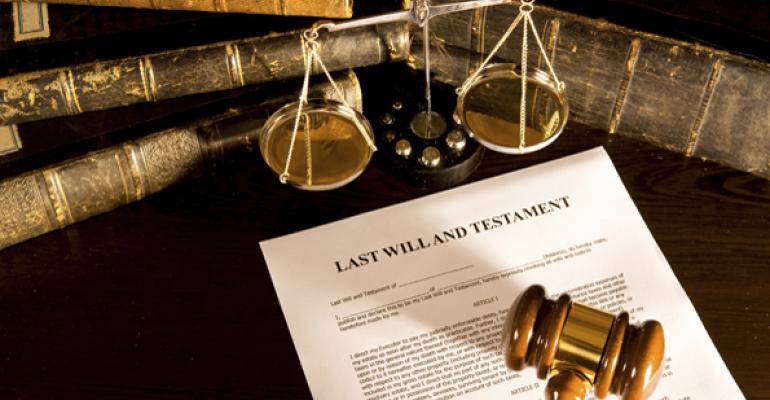In a will contest in New York, the proponent has the burden of establishing that the instrument offered for probate was duly executed and that the decedent possessed the requisite testamentary capacity at the time the instrument was executed. If the proponent satisfies that burden, the burden shifts to the objectant to establish with sufficient proof that material questions of fact exist to defeat a petition for summary judgment admitting the will to probate.
Objections to probate typically consist of: (1) lack of testamentary capacity, (2) lack of due execution, (3) undue influence, (4) duress, and/or (5) fraud.
To have standing to file objections to the probate of an alleged will, the objecting party must have a material or pecuniary interest that would be adversely affected by the probate of such propounded will. For example, an individual who would take more under intestacy (if there were no will) than she would take under the propounded will would have standing to object to probate.
Where the objectant fails to present any triable issues of fact, summary judgment may be granted in favor of the will proponent. New York courts are increasingly granting summary judgment in probate proceedings when the will proponent makes out a prima facie case and the objectant makes only bare and conclusory allegations.¹
Dececent’s Daughters Didn’t Raise Factual Issues
A recent illustration is Matter of Bellasalmo.² The decedent in Bellasalmo left a purported will leaving her entire estate to her niece-in-law and nephew-in-law and disinheriting her two daughters. The will proponent made a prima facie showing that the will was duly executed by providing a copy of the will, including an attestation clause and contemporaneous self-proving affidavit, as well as the testimony of the attorney draftsman who supervised the will execution and two attesting witnesses. The court found that the decedent’s daughters, as objectants, failed to raise any factual issue with respect to due execution, lack of testamentary capacity, mistake, fraud, duress or undue influence. Evidentiary proof must be more than “mere conclusions, expressions of hope or unsubstantiated allegations or assertions.”3 In a will contest, “opposition to a motion for summary judgment…[must] consist of more than a hope on the part of the objectant that the uncontroverted evidence of the proponent should not be worthy of belief.”4
Bellasalmo can be contrasted with a highly unusual recent case. In Matter of Alini5 the court granted summary judgment to the will objectants, denying probate to the purported will, based on a finding of duress. In Alini, the attorney draftsman testified that the purported will didn’t express the decedent’s wishes. In fact, the attorney draftsman testified that the decedent declared the purported will not to be her last will and testament, stating that “if she did not leave my office with a document to show her son, that there would be all hell to pay.” While Alini seems unique in its facts and result, it does reinforce the point that each case is very fact specific and that it’s important to consider the circumstances of a will’s execution if you suspect foul play.
Endnotes
- See, e.g., Will of Wagner, 232 A.D.2d 180, 647 N.Y.S.2d 940 (1st Dep’t 1996); Matter of Spangenberg, 670 N.Y.S.2d. 48 (2d Dep’t 1998).
- Matter of Bellasalmo, 2015-4699, New York Law Journal (Surr. Ct. Queens County, February 9, 2017).
- See Zuckerman v. City of New York, 49 N.Y.2d 557 (1980).
- Estate of Steinman, New York Law Journal (Surr. Ct. Bronx County August 31, 1998).
- Matter of Alini, 2013-1273, New York Law Journal (Surr. Ct. Richmond County, March 16, 2017).





